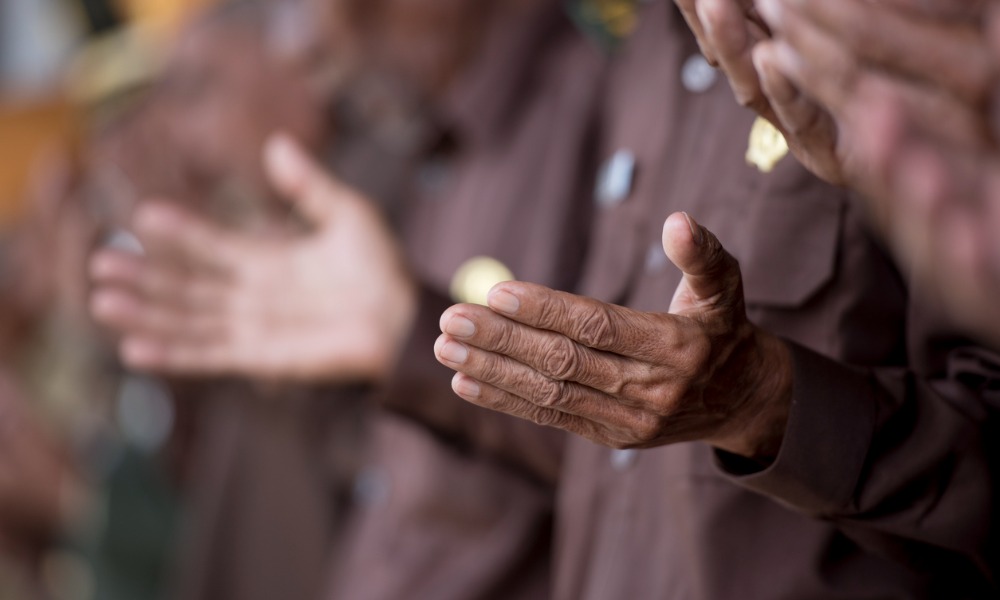
Recent cases of religious discrimination raise questions around what is and isn't a protected characteristic

Fast-food giant Chipotle is facing a lawsuit after an employee claims she was the target of religious harassment.
The employee claims the manager “began repeatedly asking her to remove her hijab”, according to the U.S. Equal Employment Opportunity Commission (EEOC ). In response, Chipotle’s chief corporate affairs officer sent an emailed statement to CNN saying that the company has a “zero tolerance policy for discrimination”, adding that it had terminated the employee in question.
And while this was an isolated incident, it does show the importance of addressing harassment based on religious grounds and properly reviewing accommodation issues in the workplace. With respect to the accommodation of religious beliefs in the workplace, they are a protected ground of discrimination in the workplace. In determining whether or not accommodation is required by employers, individual inquiry is needed.
Speaking to Lorenzo Lisi, partner at Aird & Berlis, he tells HRD that the legal determination often centers on the issue of how firmly held the employee’s beliefs are.
“Generally, human rights legislation prohibits discrimination or adverse treatment with respect to religion or ‘creed’,” he says. “This could look like refusing to make an exception to dress code requirements or refusing to recognize religious dress requirements, refusing to allow employees to observe periods of prayer at particular times of the day or refusing to allow employees time off to observe religious holidays.
“Individuals are protected from discrimination on the basis of creed where their religious beliefs are sincerely held.”
For example, the Ontario Human Rights Commission considers ‘creed’ to include a belief which:
“This is a complex issue,” says Lisi. “And it’s incredibly broad, meaning that all instances or allegations of faith-based discrimination or religious-based accommodation requests have to be carefully considered on a case by case basis.”
Accommodation is both procedural and substantive and involves not only a review of available accommodation but implementing where appropriate.
On this basis, Lisi adds: “The process itself is identical to accommodation on the basis of other human rights grounds: employers must review, inquire and implement to the point of undue hardship.”
Employers saw a significant increase of religious-based accommodation requests during the pandemic, when employees often used ‘faith’ or ‘belief’ as a rationale to request exemption from the requirement to vaccinate.
“I saw numerous requests for exemption based on information provided by employees which they stated constituted a required accommodation on the basis of religion,” says Lisi. “However, when examined more closely, the request was really based on personal preference and choice which was not considered to be subject to accommodation.”
One such case came to the Human Rights Tribunal of Ontario this year when a hospital employee claimed she was discriminated against on the basis of creed, when her employer terminated her after she refused vaccination in accordance with policy, and government guidelines. In seeing to avoid the obligation to vaccinate, the employee wrote to the hospital:
“I have a conscience given to me by my Creator. That God conscience I access through prayer and meditation. This forms part of my connection to my Creator. Upon accessing that conscience, I am simply told by my Creator “no” in regard to this mandatory vaccination.”
The employer argued that the employee’s decision to refuse a vaccination was a personal choice, and therefore didn’t fall under a creed in the Ontario Human Rights Code. The Ontario Human Rights Tribunal of Ontario agreed – arguing that bodily autonomy doesn’t meet the definition of creed under the Code.
So, what does this mean? Personal beliefs which are deemed to represent choice and not creed or religion may not be protected under the Code , and therefore a refusal to accommodate would not constitute discrimination on the basis of religion/creed.
“While this guidance is welcome, and necessary, it is critically important to engage an individual inquiry and approach to each accommodation request, and be clear on what is being requested, and for what reason,” says Lisi. “It’s only then can you make an informed decision on the request for accommodation.”
This is a large issue, according to Lisi, and he encourages employers to seek legal advice if they’re unsure.
“The stakes are high, as are the repercussions of getting it wrong,” he warns. “Put the work in, and get some advice if you’re at all unsure.”